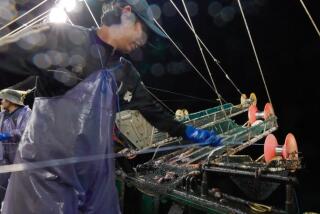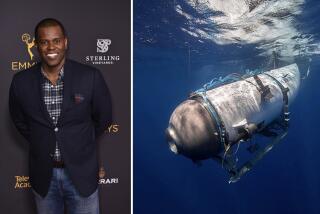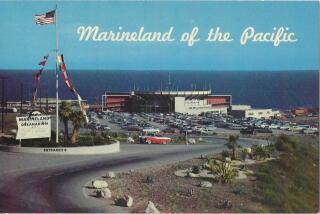SeaWorld rejects condemnation by âThe Coveâ
Might that season pass you purchased to a marine-life theme park near you be partly responsible for an annual slaughter of dolphins in Taiji, Japan?
Thatâs an assertion made in a controversial new documentary, one that suggests that all âcaptive dolphinâ parks where people watch trained wild animals perform are actually, in the words of an activist, ârewarding bad behavior.â
In The Cove, opening Aug. 7, a film crew manages to document Taijiâs annual âdrive fishery,â which rounds up âpestâ dolphins, sells some to overseas theme parks and then slaughters an estimated 23,000 dolphins, often passing the meat off as whale to unsuspecting Japanese consumers. Even though no U.S. theme parks have been allowed to import dolphins or other marine mammals from drive fisheries since 1993, SeaWorld and other U.S. parks are criticized in the movie for not working to stop the drives.
Captures for marine animal parks outside the U.S. are âthe underpinning that supports the slaughter of dolphins,â says Miami dolphin activist Ric OâBarry, trainer of TVâs original Flipper, whose protests are the focal point of The Cove.
Fred Jacobs, vice president for communications for SeaWorld, says that in the 1980s SeaWorld âsavedâ some animals from Japanese drive fisheries. Today, he says, âwe do not purchase animals from Taiji or any other Japanese drive fishery.â SeaWorld now acquires its dolphins from captive-dolphin births and from rescuing distressed animals.
In The Cove, SeaWorld is cited as an offender by association.
SeaWorld, âthe American Zoo and Aquarium Association and the Alliance of Marine Mammal Parks and Aquariums are opposed to the drive fishery,â Jacobs says.
But OâBarry, who has spent decades trying to force such associations to stop allowing members in the Caribbean and elsewhere outside the U.S. to buy drive-fisheries animals, calls such opposition âtoothless.â
âThis is an industry of hypocrites, and I hope that this film exposes them,â OâBarry says.
Naomi Rose, senior scientist with the Humane Society of the U.S., also sees a connection between American marine theme parks and the Japanese drive fisheries.
âIn my opinion, the Alliance of Marine Mammal Parks and Aquariums and the American Zoo and Aquarium Association, which have all condemned the drives in policy statements, are all talk and no action. They made these policy statements -- only after feeling pressure -- and then have done nothing else,â such as âsanctioning members that buy from the drives.â
In The Cove, OâBarry points to Americans who own Polynesian and Caribbean marine theme parks, and who are founding members of those industry organizations, as among those still buying drive-fisheries animals.
Along with stopping the drive fisheries, The Coveâs filmmakers hope to make viewers question whether their favorite marine theme park might be encouraging the drives, even tacitly, by failing to stop association members from purchasing these dolphins.
Jacobs says he canât see âhow any reasonable person could reach the conclusion that visiting SeaWorld -- where 80 percent of the marine mammals are captive born -- encourages the slaughter of dolphins in Japan. On the contrary, seeing and learning about dolphins in places like SeaWorld creates a heightened awareness of and respect for these animals.â
OâBarry laughs at that. âTheir arguments about how âWe only protect what we know, so we need captive dolphins to sensitize the public to the animalsâ makes sense until you go to Japan, where there are 50 dolphinariums all over the country -- but theyâre the country where they slaughter them.â
Cove director Louis Psihoyos says he is content to let The Cove speak for itself, to allow viewers to make the connection.
âWeâre showing people what the Japanese government doesnât want you -- or people in Japan -- to see. Itâs a bigger crime against nature than we ever expected. Weâre letting the film do the work.â
Roger Moore can be reached at [email protected] or 407-420-5369.
More to Read
The biggest entertainment stories
Get our big stories about Hollywood, film, television, music, arts, culture and more right in your inbox as soon as they publish.
You may occasionally receive promotional content from the Los Angeles Times.










